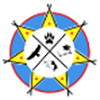History and Background
Sisseton Wahpeton College is a tribal college located in South Dakota, USA. It was established to meet the educational needs of the Sisseton - Wahpeton Sioux Tribe. The history of the college is closely linked to the cultural heritage and community development of the tribe. Since its establishment, it has been committed to providing high-quality educational opportunities for tribal members and improving the overall educational level and cultural identity of the tribe.
Academic Accreditation and Status
The college is accredited by the Higher Learning Commission - North Central Association, which ensures that the school meets the corresponding standards in terms of educational quality, curriculum setting, etc., and the degrees it awards are also recognized to a certain extent. As a tribal college, it occupies a core position in the local Indian tribal education system and is an important place for the inheritance of tribal culture and knowledge.
Majors and Academic Programs
Diploma and Bachelor's Degree Majors:
A range of majors related to local community needs and tribal culture are offered. This includes Native American Studies, which focuses on the study and inheritance of Indian culture, history, language and traditional knowledge. Students can study the myths and legends of the tribe, the social organizational structure, and the art forms in depth, and contribute to the protection and dissemination of Indian culture.
There is also a business management major, whose curriculum design takes into account the characteristics of tribal economic development and teaches students how to exert their management skills in tribal enterprises and community economic activities. For example, students learn about the operating model of tribal enterprises, financial management, and how to cooperate with external economic entities to serve the economic revitalization of the tribe.
In addition, majors such as Human Services are also very distinctive, mainly cultivating students' ability to provide social services to tribal communities, including knowledge and skills in mental health counseling, children and family services, etc., to help solve social problems within the tribe.
Teaching characteristics and methods
Tribal cultural elements are highly integrated in teaching. For example, in the teaching of the native studies major, teachers will invite tribal elders to the classroom to share traditional stories and wisdom, so that students can experience the importance of cultural inheritance firsthand. The school also emphasizes practical teaching and encourages students to participate in actual tribal projects. For example, in the business management major, students have the opportunity to participate in internships in tribal enterprises, apply the theoretical knowledge they have learned to actual business operations, and understand the operating model of the tribal economy.
Student Group and Faculty
Student Group: Mainly students from the Sisseton-Wahpeton Sioux Tribe and surrounding Indian tribes. This student composition makes the campus full of a strong tribal cultural atmosphere. The college provides tribal students with an opportunity to receive education in a familiar cultural environment, which helps to enhance their cultural confidence and sense of belonging.
Faculty: The faculty includes scholars who have in-depth research on Indian culture and professionals who are familiar with tribal affairs. They can not only impart professional knowledge, but also teach in combination with tribal cultural backgrounds. For example, teachers in the native studies major may themselves be researchers and inheritors of tribal culture. They can integrate their research results and practical experience into the teaching process to provide students with the most authentic and in-depth knowledge explanations.
Campus Life and Cultural Activities
Campus life is rich and colorful, full of Indian cultural characteristics. The college often holds traditional Indian ceremonies such as Sun Dance, pow-wow (Indian traditional song and dance gathering) and other activities. These activities are not only a display of culture, but also an important way for students to learn and inherit culture. At the same time, the school also has various clubs and organizations, such as handicraft clubs, where students can learn to make traditional Indian handicrafts, such as beads and pottery. There are also sports clubs that carry out sports activities such as basketball and archery to cultivate students' teamwork spirit and physical fitness.
Admission requirements and financial aid
Admission requirements: For junior college and undergraduate admission, students are usually required to have a high school diploma or equivalent. For non-local tribal students, more background information and relevant supporting materials may be required. Some majors may also require students to take entrance tests or interviews to determine whether they are suitable for studying in the major.
Financial aid: In view of its purpose of serving tribal students, the school provides students with a variety of financial aid methods. Including the federal government's Indian student aid program, tribal scholarships, and scholarships established within the school. These financial aid measures effectively reduce the financial burden of students, allowing many tribal students who may not be able to go to school for financial reasons to successfully receive higher education.
-

Harvard University
-

Massachusetts Institute of Technology
-

South University
-

University of West Georgia
-

Stanford University
-

Northwest Nazarene University
-

Hawaii Pacific University
-

Shorter University
-

Nova Southeastern University
-

Saint Leo University
-

Mesoamerican University
-

Istmo University
-

Mariano Galvez University of Guatemala
-

Regional University of Guatemala
-

Galileo University
-

Francisco Marroquín University
-

Rafael Landívar University
-

University of the Valley of Guatemala
-

University of San Carlos of Guatemala
-

Technological Institute of Tlaxcala Plateau
-

Golfo University
-

Technological University of South Sonora
-

Technological University of Huejotzingo
-

Tizimín Institute of Technology
-

Chilpancingo Institute of Technology

